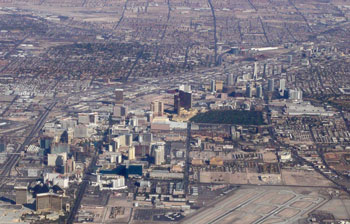Why airlines keep prices high until a month before a flight
 Recently my father asked whether he should buy his plane ticket to Germany now, or if he should wait a while. It’s now late July and he wants to fly in late October, so this would be about 12 weeks out. I told him he should wait for at least a month, if not two before he bought a ticket and it occured to me that many people probably don’t understand why the airlines play this game with passengers.
Recently my father asked whether he should buy his plane ticket to Germany now, or if he should wait a while. It’s now late July and he wants to fly in late October, so this would be about 12 weeks out. I told him he should wait for at least a month, if not two before he bought a ticket and it occured to me that many people probably don’t understand why the airlines play this game with passengers.
The perfect time to buy plane tickets
Let me start this explanation by citing the only major exception to this rule, which is at holiday times. If you want to fly somewhere over Christmas, Thansgiving, or any other major holiday where many others take to the skies, then the advice is to buy your ticket as early as you lock in your dates. The airlines know very well that their planes will all be full on those days so they have no incentive to offer sales for those who book early.
However, most flights are not on holiday times, so we are often looking for fare sales and such to minimize the price. As of a few years ago the best research showed that airlines offered the lowest prices between 2 and 8 weeks before departure. Newer research indicates that it’s actually between 4 and 6 weeks prior to departure. The differences between the two are probably minor, but this actually makes buying a ticket with confidence a bit easier.
Why do airlines start with high prices and then also end up with high prices?
Unless you’ve studied economics, which I have, this whole system might seem arbitrary or maybe even foolish, but it’s actually quite scientific and proven to maximize profits (or minimize losses) for airlines. Think of it this way, let’s say you live in Atlanta and are invited to a wedding in Europe on a specific date. You want to arrive 2 days before the wedding and depart perhaps 3 days after the wedding. Going a week before or a week after does you no good, so you are what economists call “inelastic,” meaning that you aren’t flexible.
Someone with dates locked in way in advance will pay more for a seat on a plane just to make sure they are getting there on exactly the right day. They don’t want to try to save US$50 by getting there the morning of the wedding or 4 days before, so they buy the ticket whatever the price.
Now, let’s also think about someone who might be flying from Boston to London one week from now. If they’ve waited this long to buy a ticket it probably means they are spontaneous or maybe going for some specific event that just came up. They’ll pay more for a ticket 7 days from now, although they are still able to buy a cheaper ticket for 30 days from now if they aren’t in such a hurry.
These people who want to go next week and haven’t bought a ticket are also inelastic, so cutting the price by US$100 probably won’t sell many more seats. Either they are going to go or they aren’t.
The magic zone of 4 to 6 weeks
So we’ve determined that people who buy way in advance aren’t too price sensitive, and those going at the last minute aren’t either, but people who wait until about a month out usually are price sensitive. That’s when the best deals are to be had.
Also, consider that airlines are always trying to fill the planes this month and next month, so they offer sales when they have to in order to sell every seat they can. If an airline offered very cheap tickets for October flights in July, that would mean that many people who would have gone sooner will now wait for the cheaper tickets. This means empty seats before the sale fares kick in, which is exactly what airlines don’t want.
Keep these factors in mind and the pricing of airfares actually makes perfect sense.
